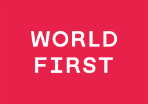Daniel is Founder and CEO and has 20 years of experience in the international finance world focusing on cross-border payments, technology and the property sectors. Daniel is widely quoted as an expert within the money transfer industry including by The Economist, The Wall Street Journal, Reuters, CNBC and Bloomberg. Daniel is passionate about helping consumers and businesses find the best and most efficient ways to transfer money internationally.
Frequently asked questions
How we calculate the savings
Contents
Summary
Norway's money transfer regulations
Norway's monetary and regulatory authorities
Norway's economic background
Banking and taxation
Currency
Norway to Individual Country Guides
Summary
The Norwegian government does not apply foreign exchange controls on the krone (NOK), allowing money to be sent to Norway and transferred from Norway freely, without being subject to prior government approval.
Norway's money transfer regulations
Norway has deregulated the process of receiving or transferring money across national borders. The country does not apply currency controls and is open to foreign investment and trade. As in most other advanced economies, physical transfers of currency that exceed a value equivalent to NOK 25,000 must be declared to Norwegian customs authorities. Exporting more than NOK 25,000 of hard currency must be approved in advance by Norwegian customs and transferred through a bank.
The krone is mainly exchanged against the euro and the US dollar. According to the Bank for International Settlements, the NOKs total exchange volume with the USD amounted to US$48bn per day in April 2013, followed by US$20bn per day against the euro. On Norwegian foreign exchange platforms, the USD is the most frequently traded currency, involved in 38% of all forex transfers. It is followed by the NOK (26%), the euro (14.5%), the pound sterling (5.8%) and the Swedish krona, or SEK (4.7%).
Norway's monetary and regulatory authorities
The krone is on a free float and the central bank of Norway, Norges Bank, does not target a specific exchange rate. A January 2014 report from the Organisation for Economic Cooperation and Development (OECD) showed that despite improvement in 2013, the krone was still overvalued by roughly 26% at the start of the year. The currncy has weakened over the course of 2014, but arguably remains overvalued; a prospective cut in the policy rate is meant to encourage its return to a more sustainable level and avoid further appreciation.
Norges Bank sets national monetary policy, works to maintain price stability and monitors the health of the financial system. An independent government agency, the Financial Supervisory Authority of Norway (Finanstilsynet), provides direct oversight of the financial market by applying regulation issued by parliament, the government and the ministry of finance. The Finanstilsynet monitors performance and solvency for companies across the financial sector, including banking, insurance, securities, real estate and payment institutions, among others.
Norway opted not to join the European Union (EU) in a 1994 referendum, but it is a member of the European Economic Area and contributes significantly to the EU budget.
Norway's economic background
Norway has one of the strongest economies in Europe in terms of per capita income, largely supported by the countrys abundant natural resources and a diversified private sector. Norway is the largest oil exporter in Western Europe and the seventh largest in the world. Petroleum revenue fuelled GDP per capita of over US$100,800 in 2013, the second highest rate in Europe after Luxembourg ($111,000) and well ahead of neighbouring Denmark (US$58,900), Sweden (US$58,160) and Finland (US$47,200). Norway is characterised by its comparatively high standard of living and wages. In a speech in January 2014, finance minister Siv Jensen stated that hourly wage costs in Norway were almost 70% higher than in neighbouring countries.
These factors - strong revenue from petroleum exports and high wage standards, among others - have contributed to the appreciation of the NOK. The krone has gained value against the US dollar (USD) and the euro (EUR) in recent years, and the countrys strong economic performance in the first half of 2014 is expected to continue this trend through 2015. A more expensive krone makes it difficult for Norwegian exports to remain competitive, and national authorities have announced that they will work to manage production costs and keep wages from rising in the future, to stabilise the value of the krone.
Banking and taxation
A number of foreign financial institutions operate branches in Norway, facilitating certain types of currency flows with countries in Europe and beyond. By September 2014, 41 institutions had registered Norwegian branches, including BNP Paribas, Citibank, Deutsche Bank, Royal Bank of Scotland and JP Morgan, among others.
Norways tax regime is generally favourable to non-residents, particularly for companies or individuals who are included under the European Economic Area (EEA), and there are no restrictions on foreign property ownership. By 2014, Norway had concluded some 85 double taxation agreements.
Currency
Norways currency, the krone (NOK), is issued by the Norges Bank. It is denominated in bills of 50, 100, 200, 500 and 100 krone, and coins of 1, 2, 5, 10 and 20 krone.
Norway to Individual Country Guides
Money Transfer Norway to India



















